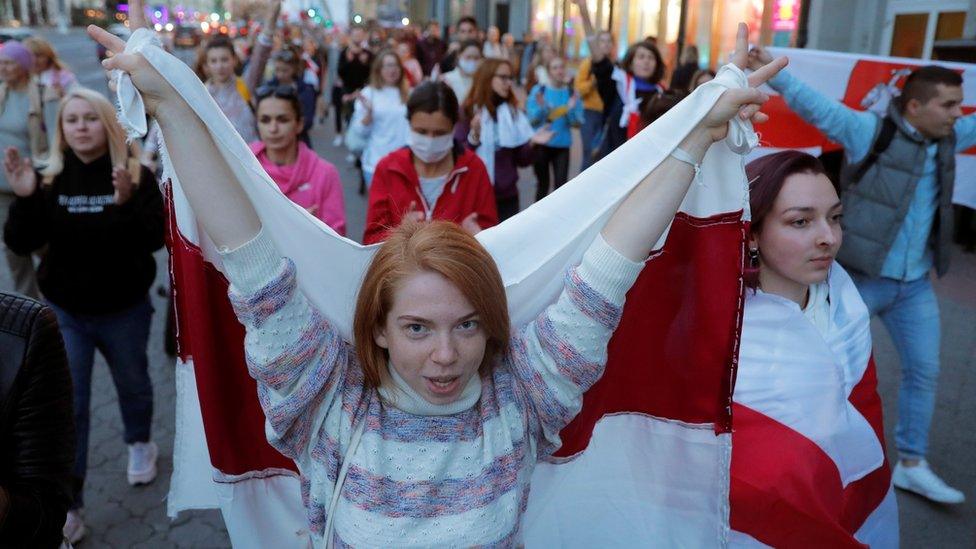Belarus: Nobel Laureate Alexievich visited by diplomats amid 'harassment'
- Published
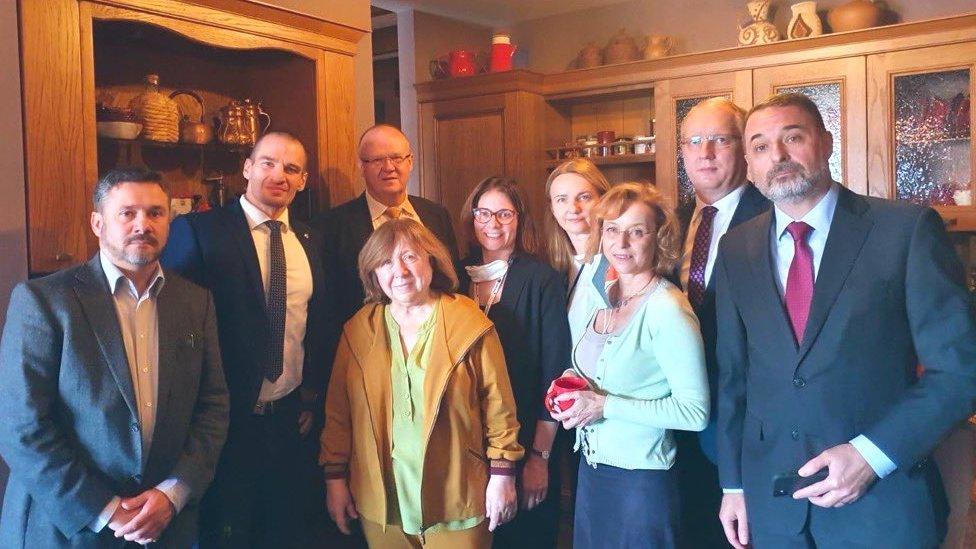
Svetlana Alexievich pictured at home in Minsk surrounded by European diplomats
European diplomats have been photographed at the home of a Nobel Prize-winning writer in Belarus after she said masked men tried to break in.
Svetlana Alexievich called journalists to her home on Wednesday after the incident.
She is the last leading member of the opposition Co-ordination Council still in Belarus who has not been detained.
The government has cracked down on dissent after protests swept the country following a disputed election.
Maria Kolesnikova, one of three women who joined forces to challenge authoritarian President Alexander Lukashenko in August's vote, is in detention after she resisted attempts by the authorities to expel her to Ukraine earlier this week.
And on Wednesday witnesses reportedly saw Maxim Znak, a lawyer and another member of the Co-ordination Council, being led down a street in the capital Minsk by masked men in plain clothes.
Belarusian authorities said both were being held on suspicion of harming national security and destabilising the country.
Thousands of people have been arrested in the crackdown on the opposition and its supporters.
Authorities announced on Wednesday that 121 people had been detained at protests nationwide the day before. Hundreds more people were arrested on Sunday during the fourth consecutive weekend of anti-government demonstrations.
What's the latest on Svetlana Alexievich?
Ms Alexievich, a Nobel Prize-winning writer and journalist, said she had asked supporters to come to her home after she was harassed, external with door knocks and phone calls. She said masked men had earlier attempted to break into her apartment.
Sweden's Foreign Minister Ann Linde tweeted an image, external of the author at home in Minsk surrounded by European diplomats late on Wednesday morning.
"Harassments, arrests [and] forced exile of opposition... is a serious violation of peaceful protests," she said. "Happy to share this photo taken a moment ago in Minsk."
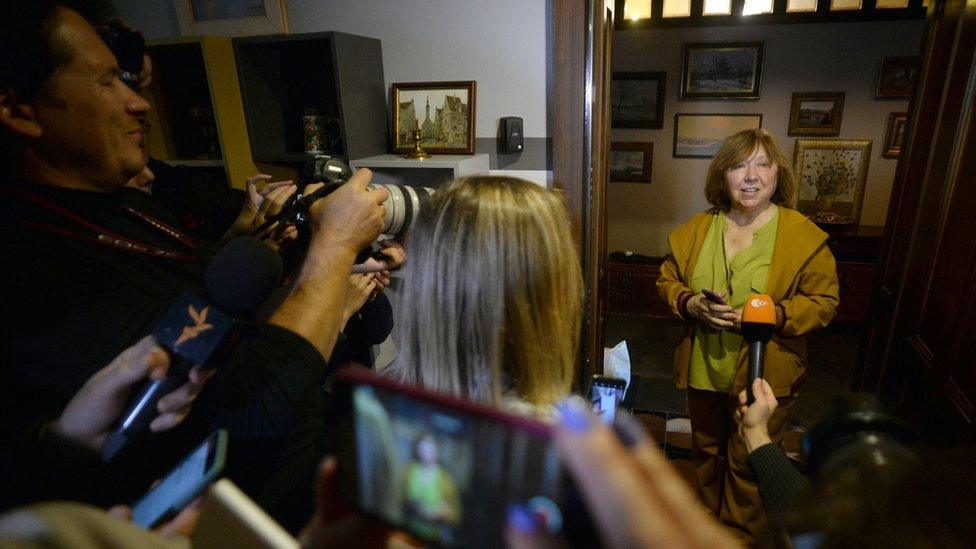
Svetlana Alexievich called journalists and supporters to her home, alleging masked men had tried to break in
In a statement posted on the website of the Belarusian PEN Centre, external, Ms Alexievich said the Co-ordination Council "wanted a dialogue to begin in society".
The opposition set up the committee in the wake of the election calling for a peaceful transfer of power.
"We were not preparing a coup. We wanted to prevent a split in our country," she wrote. "It was not the [council] that revolted. The country revolted."
And what happened to Maxim Znak?
The 39-year-old, who previously worked as a lawyer for jailed presidential candidate Viktor Babaryko, was due to take part in a video call on Wednesday but failed to dial in.
When a colleague called him, Mr Znak said someone had arrived and then hung up.
He then texted the word "masks" to a group, one activist told local media. This is believed to be a reference to the face masks worn by the Belarusian security services.
What lies behind the Belarus protests?
Witnesses then reported seeing Mr Znak being led away.
On Monday, Mr Znak had told the BBC he was concerned about his safety.
"I'm pretending to be relaxed," he said. "It's a professional habit - but actually I'm very concerned and scared."
The police are yet to comment on reports of his detention.
What else is happening?
On Wednesday, exiled opposition leader Svetlana Tikhanovskaya visited the Polish capital Warsaw where she delivered a speech at a university and called for the protests in Belarus to remain peaceful.
"I think it is impossible to fight violence and give violence," she said.
She also called for the immediate release of Mr Znak.
"The methods employed by the so-called authorities are outrageous," she said in a statement. "It's clear Lukashenko is afraid of negotiations and is trying... to paralyse the work of the Co-ordination Council and intimidate its members."
Protesters took to the streets of Minsk and demonstrated outside the presidential palace on Sunday
Ms Tikhanovskaya, the chief opposition rival to Mr Lukashenko in last month's election, was forced to go into exile in neighbouring Lithuania shortly after the vote.
She entered the race after her husband Sergei Tikhanovsky and another candidate were jailed.
Mr Lukashenko, meanwhile, is set to meet Russian President Vladimir Putin on 14 September. The pair will discuss energy co-operation, regional conflicts and many other topics, Russia's Ria news agency reports.
- Published8 September 2020
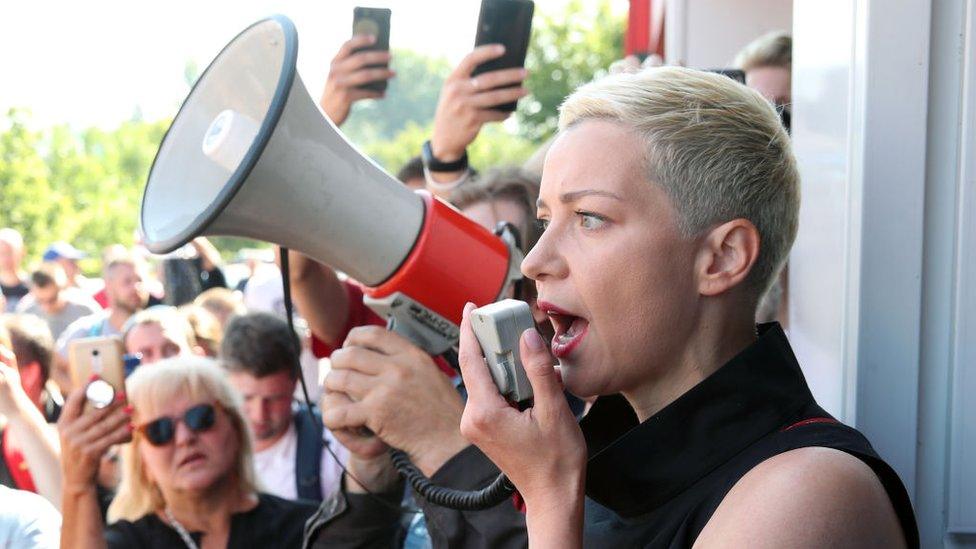
- Published8 September 2020
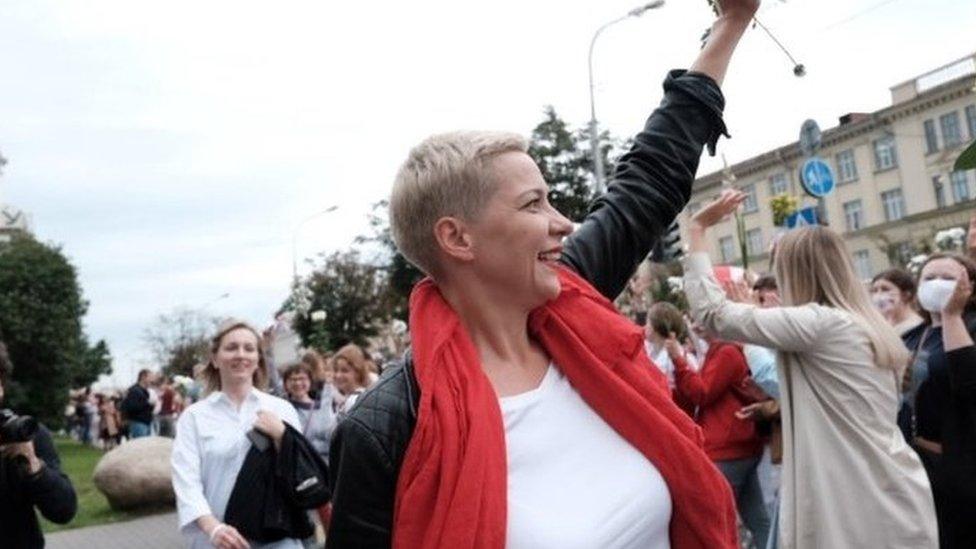
- Published7 September 2020
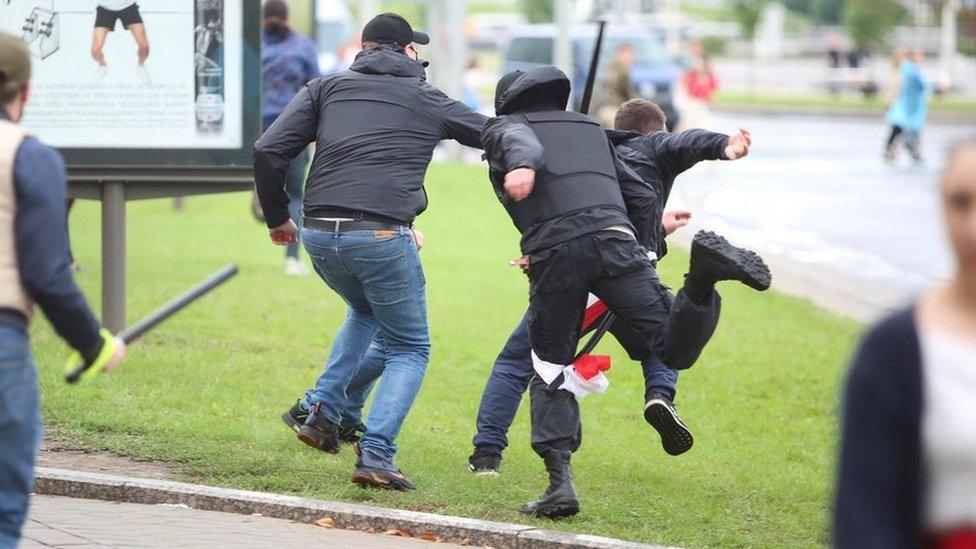
- Published1 September 2020
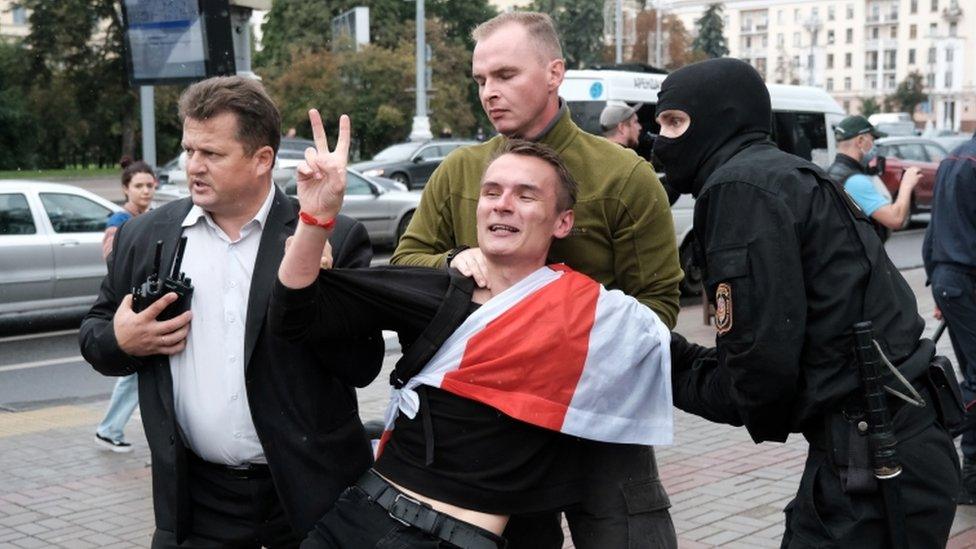
- Published29 August 2020
